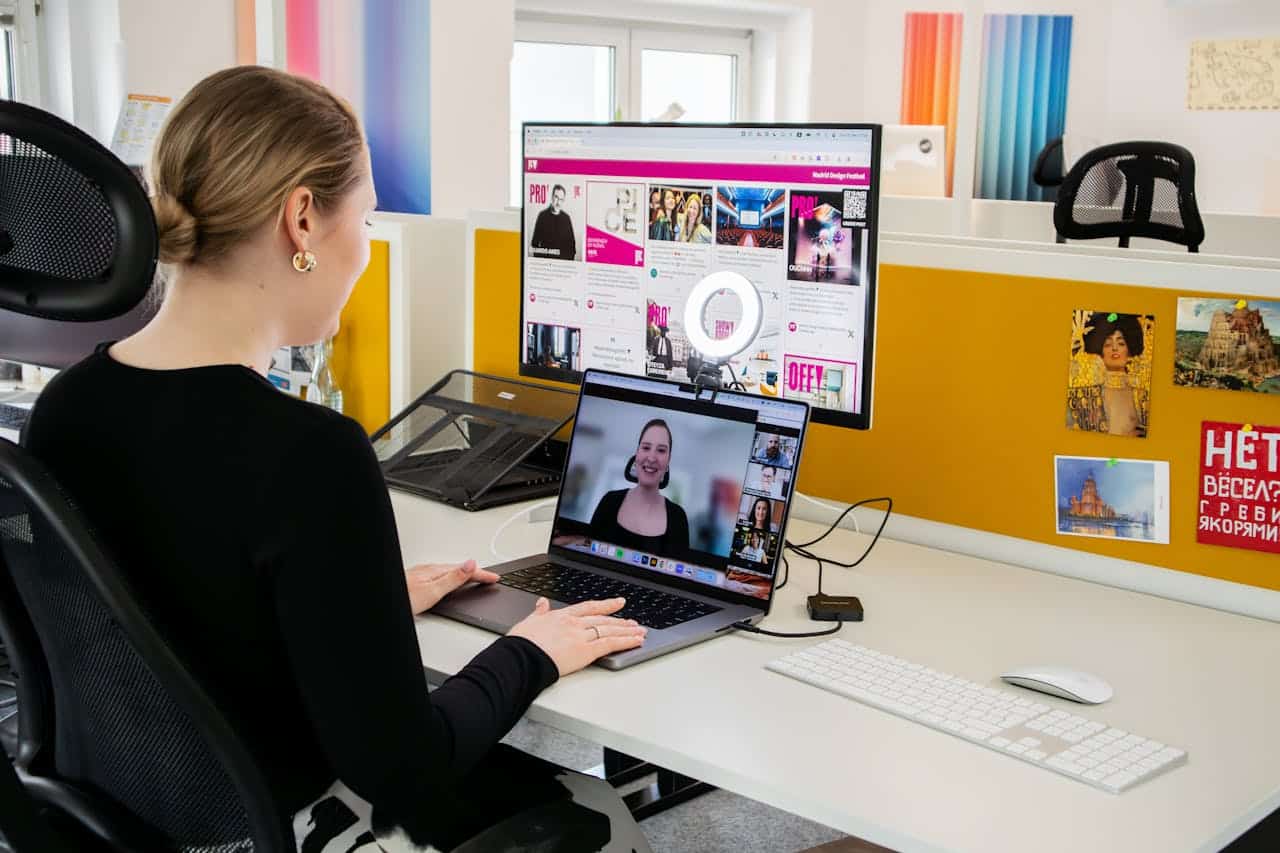Did you know that the events industry is one of the fastest-growing sectors today? It’s not just about small gatherings anymore. We’re talking about event planning – whether it’s a big event, corporate events, expos, or conferences.
In this guide, we’re going to walk you through the stages of event planning, from defining the event to the post-event wrap-up.
Whether you’re planning a small corporate meeting or a large conference, the principles remain the same. It’s about creating an experience that resonates with the attendees and achieves the event’s objectives.
So, let’s learn together about the art of successful event planning. Keep reading and we’ll get right into it.
Defining the Event
Let’s start with the basics. What’s the event all about? Is it a corporate shindig, a conference, or an expo? Each type of event has its unique requirements and challenges. Understanding the event’s nature is the first step in our journey of successful event planning.
Next, we need to figure out who we’re throwing this event for. Is it for business bigwigs, industry professionals, or the general public? Knowing our audience helps us tailor the event to meet their needs and expectations.
Finally, we need to set clear objectives for the event. What do we hope to achieve? Is it to generate leads, build brand awareness, or celebrate a milestone? Having clear objectives gives us a sense of direction and helps us measure the success of the event.
Setting the Foundation
With the event defined and our goals set, it’s time to lay the groundwork. This involves creating a budget. How much are we willing to spend on this event?
The budget will guide our decisions and help us allocate resources effectively. It’s like a financial blueprint that keeps us on track and prevents us from overspending. We need to account for all potential costs—venue, catering, entertainment, marketing, and unexpected expenses that might pop up.
Identifying key stakeholders is another crucial step. These are the people or organizations that have a vested interest in the success of the event. They could be sponsors, partners, or top management in the case of a corporate event. We need to ensure that our event meets their expectations.
It’s like a balancing act. We need to align our event goals with the interests of these stakeholders. Forming a team is also part of setting the foundation. We need a group of dedicated individuals who will help bring our vision to life.
Each team member should have a clear role and responsibilities. From the event manager to the logistics coordinator, each role is integral to the event’s success.
Lastly, we need to establish timelines and deadlines. When is the event taking place? When do we need to book the venue, send out invitations, or confirm the speakers? Having a detailed timeline helps us stay organized and ensures that we don’t miss any important steps.
Planning Stage
Now that we’ve set the foundation, it’s time to dive into the nitty-gritty of planning. This stage involves several key steps, each of which plays a crucial role in shaping the event.
Venue Selection and Logistics
Choosing the right venue is a critical decision in the event planning process. The venue sets the tone for the event and can significantly impact the attendees’ experience.
We need to consider factors such as location, size, facilities, and cost. The venue should be easily accessible for the attendees (including disabled people) and have the necessary facilities for our event.
Also, it should fit within our budget. In addition to selecting the venue, we need to handle the logistics. This includes negotiating contracts, obtaining necessary permits, and arranging for equipment and supplies.
It’s a lot to handle, but with careful planning and organization, we can ensure everything is in place for the big day.
Program Development
After sorting out the venue and logistics, we move on to developing the program. This involves outlining the event activities and schedule. We need to decide what will happen at the event, when it will happen, and who will be involved.
It’s like creating a script for a play. Each scene, or in this case, each activity, needs to be carefully planned and timed. Selecting speakers, performers, or presenters is a key part of program development. We need to choose individuals who are not only knowledgeable and engaging but also relevant to our event and appealing to our target audience.
It’s like casting for a movie. We need to find the right people for the right roles to make the event a hit.
Marketing and Promotion
With the venue secured and the program in place, it’s time to spread the word about our event. Creating a comprehensive marketing strategy is crucial at this stage.
We need to decide which marketing channels to use, what messages to convey, and how to reach our target audience effectively. Marketing an event is not just about selling tickets; it’s also about building anticipation and excitement.
We want our potential attendees to not only know about our event but also to look forward to it. It’s about creating a buzz—the more people talk about our event, the more successful it’s likely to be.
Execution Phase
As the event day approaches, we shift from planning to execution. This phase is all about turning our plans into reality. It’s the culmination of all our hard work, and it’s when we see our vision come to life.
Operations and Logistics
Coordinating vendors, managing event setup, handling registration, and ensuring security are some of the tasks involved in this stage. It’s a busy time, but seeing our event come to life makes it all worth it.
Working with vendors requires clear communication and coordination. We need to ensure that everyone is on the same page regarding delivery times, setup requirements, and other details.
It’s also essential to have a backup plan in case a vendor falls through at the last minute. Managing the event setup involves overseeing the arrangement and decor of the venue, setting up equipment, and ensuring that everything is ready for the attendees.
This requires a keen eye for detail and the ability to solve problems on the fly. Handling registration is another crucial task. We need to ensure a smooth and efficient registration process for our attendees. This includes checking in attendees, providing them with necessary materials, and addressing any issues or questions they might have.
Ensuring security at the event is paramount. We need to have measures in place to ensure the safety and well-being of our attendees. This could involve hiring security personnel, implementing safety protocols, and being prepared to handle any emergencies that might arise.
Event Day Management
On the day of the event, our focus is on ensuring everything runs smoothly. We need to manage the program, handle any last-minute changes or issues, and ensure a positive experience for our attendees.
Managing the program involves ensuring that all activities occur as planned. We need to coordinate with speakers, performers, and other participants to ensure they are ready and on time.
We also need to manage transitions between program segments to maintain a smooth flow. It’s like conducting an orchestra, where every element needs to come together in harmony.
Handling last-minute changes or issues is another critical task. Despite our best planning efforts, unexpected things can happen. We need to be flexible and adaptable, ready to come up with quick solutions to any problems that might arise.
It’s all about staying calm under pressure and making quick, effective decisions. Ensuring a positive experience for our attendees is our ultimate goal. We need to be attentive to their needs, responsive to their feedback, and committed to making the event a memorable experience for them.
After all, they are the reason we’re organizing this event, and their satisfaction is our success.
Post-Event Evaluation and Wrap-up
Once the event is over, our work is not done yet. We need to collect feedback, analyze the success of the event, and document lessons learned. This helps us improve future events and makes us better event planners.
Collecting feedback from attendees is crucial. We need to know what they liked about the event, what they didn’t like, and what they think could be improved.
This can be done through surveys, interviews, or informal conversations. Their feedback is like a mirror that reflects our performance, and we need to look into it to improve.
Analyzing the success of the event involves looking at various metrics. How many people attended? Did we meet our objectives? What was the overall response to the event? This analysis helps us understand what worked and what didn’t, and provides valuable insights for future events. Documenting lessons learned is a key part of the post-event evaluation.
We need to reflect on our experiences, identify what we did well and what we could do better, and make note of these lessons for future reference.
It’s like a post-mortem analysis that helps us learn and grow as event planners.
Your Path to Successful Event Planning with The Event Planner Expo
Successful event planning is a complex process that requires careful planning, meticulous execution, and thoughtful evaluation. From defining the event to wrapping up after it’s over, each stage plays a crucial role in the success of the event.
What better way to learn and grow than by attending this year’s Event Planner Expo? Celebrating its 10-Year Anniversary, the Expo is a must-attend event for all event planners, marketers, and corporate decision-makers.
It’s a fantastic opportunity to learn from industry professionals, network with peers, and discover the latest trends in event planning. So, are you ready to take your event planning skills to the next level?
Get your tickets for the Event Planner Expo now and join us in celebrating a decade of excellence in event planning. We can’t wait to see you there!








